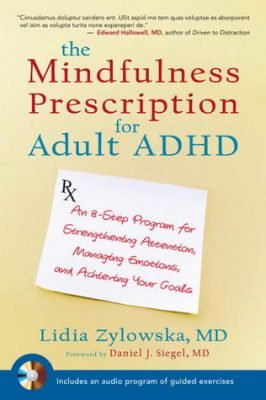Living with ADHD
Although for many, it can be a difficult journey towards accessing treatment for adult ADHD, symptoms can be significantly improved if people receive support and are enabled with appropriate coping strategies to help manage and regulate day-to-day experiences and challenges.
This part of the website will feature treatments, coping strategies, and tips for managing ADHD. A lot of this information has been gleaned and gathered by our volunteers from the real-world experience of our generous group members during Peer Support Group Drop-In sessions. In this way, we have gained a valuable resource of information by taking notes during each Peer Support session. This part of the website is always expanding as we gather new information and some of the information on this page will develop into dedicated pages in future, so please check back for more updates.
Exercise
In moderation, exercise can be effective in managing the symptoms of ADHD. It can be particularly effective at helping reduce anxiety and nervous energy, as well as to give adults with ADHD time to "process" experiences from their day and to "sort out" their thoughts. Exercising naturally releases endorphins and many people we have met from peer support groups finds regular exercise can really help with their ADHD symptoms.
However, those with ADHD must also be aware of the addictive nature of exercising to excess (and related conditions, including anorexia and other mental health issues related to habitual behaviour, circular thinking or obsession, and control).
Diet and ADHD
According to the medical research model there are no conclusive trials that show that diet has a direct effect on ADHD symptoms. However, many members of the support group say that diet can have a big impact on overall well being. Moreover, many people with ADHD may have sensory processing difficulties and this can mean that forgetting to eat and drink and suddenly feeling hungry can be very overwhelming and this can exacerbate ADHD symptoms, including irritability, anxiety, and confusion. There have been anecdotal reports that some support group members have found benefit from a gluten free and dairy free diet, as well as a diet high in fibre, protein, and omega 3 fatty acids and other healthy fats. Coeliac disease, in particular, has been shown in research to have a strong genetic link to neurodiversity and if members of your family are effected by gluten intolerance, then it is well worth speaking to your GP to see if you can get tested.
As mentioned above, hand in hand with obsessive exercise, many neurodiverse adults also report either overeating, bulimia, anorexia, and other eating disorders. If you are concerned that you may have an eating disorder, speak to your GP, or if you are unsure, you can find more information about eating disorders here.
 Mindfulness
Mindfulness
Mindfulness and meditation, can be very challenging for people with ADHD, but it can also be very effective to help with self-regulation for adult ADHD. One of the pioneers of mindfulness-based cognitive therapy is the author John Kabat-Zing, who has produced books that include self-practice meditation CDs. Another very good resource is the book: ‘The Mindfulness Prescription for Adult ADHD: An 8‑Step Program’ by Lidia Zylowska.
Tai Chi and Yoga
Peer support group members have shared their experiences and many have reported that therapeutic activities that focus on breathing and body exercises can have a beneficial effect for ADHD. Yoga and pilates are the most commonly practiced full-body exercises designed to improve flexibility, strength, and mental wellbeing and many of our members practice different forms - including those tailored for people with physical disabilities. In addition, there have been some small-scale studies that have indicated that Tai Chi may be effective to help reduce some ADHD symptoms. It has also been reported that the positive effects of Tai Chi can be improved further by practicing Tai Chi with your eyes closed (in a safe space where you will not hurt yourself and/or are practicing Tai Chi with a partner).
Counselling and Cognitive Behavioural Treatment
For information about treatments, see our page that covers ADHD CBT.



